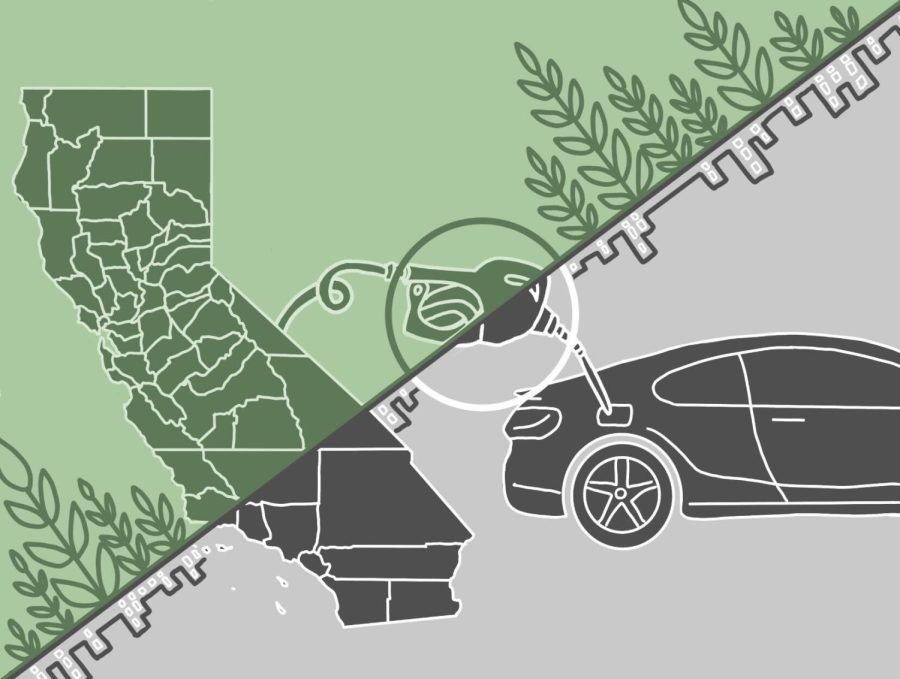California’s Ban on Gas-Fueled Cars: A Roadmap for Future Actions Against Climate Change
California lawmakers are to ban the sale of all new model gasoline-fueled cars by 2035, a major step to reduce carbon emissions and fight against climate change.
September 10, 2022
On Thursday Aug. 31, lawmakers in California approved a ban on selling new gasoline-fueled vehicles; a step in the direction of a more climate-friendly state.
This ban will allow residents to own and drive a car that runs on gasoline past 2035; it only bans the sale of new gas-fueled models following 2035. It also allows one-fifth of car new sales to be dedicated to hybrid cars, or cars that run on both gasoline and electricity.
“It leaves out populations that have been disproportionately represented, and when I say that I mean low-income families who maybe rely on cheaper vehicles for transportation,” Olivia Yang ‘23 said. “I don’t know if that’s something that the state of California has been addressing, subsidizing public transportation, or if they’re trying to be more inclusive with this law, but I think an outright ban is not the best way to go about climate change.”
The most populated state, which holds a considerable amount of influence over the car industry, has initiated this ban in wake of President Biden’s Inflation Reduction Act, which rewards owners of electric vehicles with tax credits. It also follows the skyrocketing of gasoline prices across the nation.
“I drive my own car, and I think that the gas prices are crazy,” Isabella Schiesz ‘23 said. “I’ve definitely considered transferring to a hybrid or an electric vehicle, but of course, as a teenager, I can’t buy a new car. Knowing in the future that it will be easier and more accessible is definitely encouraging.”
California is not the only government taking ambitious steps toward a greener future, the European Parliament this past June has planned to ban sales of gas and diesel by 2035 and Canada is intending to do the same. There has been debate over if this ban will be a better fit for Europe than California.
“In the United States, unless you live in a big city, it’s really hard to go places through public transport and bike riding, because it is so spread out,” Silvia Ciacci ‘23 said. “In Europe especially, it’s a lot easier, the towns are much smaller, but basically, everywhere in the United States, you need a car.”
While this ban may set an example for other governments to implement similar policies, it may not be realistic for Texas to enforce something similar.
“Especially [in] Texas, they have a lot of rural areas, so it’s going to be hard for people with electric cars to get where they need to go with a lack of charger stations,” Rohan Engineer ‘23 said.
The effects of this ban will go beyond reduced carbon emissions, they will also impact the economy, with companies being forced to lay off workers, shut down factories, and dealerships closing.
“Due to banning gas, losing that many jobs is going to have a pretty bad effect on the economy and working class,” Max Matthies ‘24 said. “I think that only one state doing something will not even make a big impact on the environment but if it does help [the environment], then possibly it could be worth it.”



